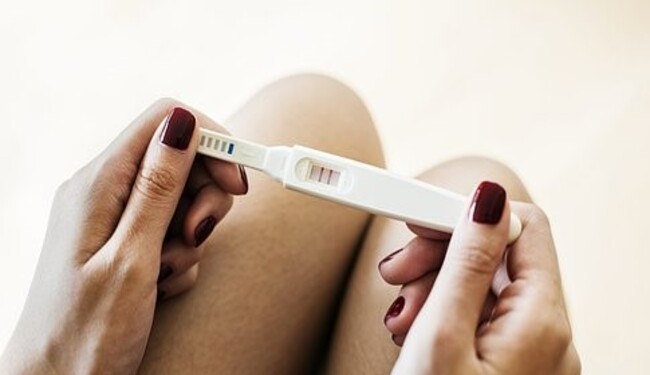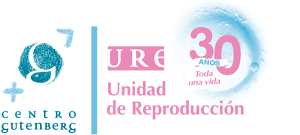What is an ectopic pregnancy and what does it have to do with assisted reproduction

There is some terminology in assisted reproduction that is used pretty frequently. At our fertility clinic in Spain we make every effort to clarify all these concepts for our patients, as you can see by looking through our blog. Today we’d like to talk to you about ectopic pregnancies and explain, in detail, what they are and how they affect your fertility so that any doubts you may have on this topic are cleared up.
What’s an ectopic pregnancy?
We use the term ectopic pregnancy when the embryo implants outside of the endometrial cavity of the uterus. The most frequent place implantation will occur is in a fallopian tube, occurring here in approximately 95% of cases. Less frequently implantation will also occur in the cervix, a uterine tube, the peritoneal cavity or in an ovary.
An ectopic pregnancy affects one in every two to three hundred pregnancies, and this figure has risen in recent years. It is believed that the incidence of ectopic pregnancy is linked to habits that harm fertility such as smoking, as well as to pelvic inflammatory disease and assisted reproduction treatments such as artificial insemination and in vitro fertilisation (IVF).
Years ago this type of pregnancy was one of the top causes of pregnancy-related deaths. Today, however, thanks to current diagnostic techniques (such as the ultrasound and the Beta hCG blood test), an ectopic pregnancy can be diagnosed much earlier, meaning the risk of death as a result of this medical condition is lower.
There is a very rare medical condition called heterotopic pregnancy which is the simultaneous implantation of one embryo in the uterine cavity and another outside of the uterine cavity. The incidence is two in every ten thousand pregnancies.
What are the risk factors for an ectopic pregnancy?
We can talk about certain situations that seem to favour the occurrence of an ectopic pregnancy. Some examples would be:
- History of pelvic inflammatory disease.
- History of a sexually transmitted disease.
- History of pelvic or abdominal surgeries such as a tubal ligation or an appendectomy.
- A previous ectopic pregnancy.
- Endometriosis.
- Uterine fibroids.
- Having an intrauterine device (IUD) implanted.
- Being a smoker: there are studies indicating that the risk of an ectopic pregnancy is twice as high in women who smoke more than 20 cigarettes a day.
- In Vitro Fertilisation treatment. It is believed that the increase in size of the ovaries (which could distort the normal anatomy of the fallopian tubes), and hormone levels could lead to a higher incidence of ectopic pregnancy.
What are the symptoms of an ectopic pregnancy?
During an ectopic pregnancy, early symptoms are the same as those of a normal pregnancy such as nausea, frequent urination, fatigue, abdominal discomfort, etc. However, as the pregnancy progresses and becomes more complicated there are more specific symptoms that raise red flags, such as:
- Intense abdominal pain.
- Vaginal bleeding.
- Weakness and light-headedness.
- Shoulder pain.
- Rectal pressure.
- Low blood pressure.
How is an ectopic pregnancy diagnosed?
When the pregnancy is between four and five weeks along (counting from the last menstruation), or when the Beta hCG in a blood sample is higher than 800-1,000 mUI/ml, the gestational sac should be able to be seen during a vaginal ultrasound. If no gestational sac is observed, we should suspect that the pregnancy is ectopic.
The protocol in these cases is to perform another ultrasound and Beta hCG analysis after 48 hours to confirm or rule out the diagnosis. In many instances the gestational sac can be visualised outside of the uterus, though confirming its presence through an ultrasound scan is not always necessary for the diagnosis of an ectopic pregnancy.
A laparoscopy is another tool used to diagnose this medical condition. At present, however, early ultrasound scans and consecutive Beta hCG analyses have reduced the need for laparoscopies as a diagnostic tool.
How is an ectopic pregnancy treated?
Treatment will always depend on the patient’s status as well as how early the diagnosis was made. There are three possibilities:
- Expectant management (watchful waiting). This option involves observing the pregnancy and waiting for it to resolve on its own, which happens in up to 70% of cases. For this option the patient’s condition will need to be stable and asymptomatic, and regular ultrasound scans and blood work will need to be performed.
- Medical treatment. This option involves intramuscular administration of methotrexate, an antineoplastic drug that causes the pregnancy to stop developing. This treatment can be used in stable, asymptomatic patients with Beta hCG levels under 5,000 mUI/ml, absence of blood in the abdomen and gestational measurements under 3.5 cm on the ultrasound scan.
- Surgical management. Surgical intervention is generally performed via laparoscopy and can range from a salpingostomy (opening of the fallopian tube and removal of contents), or salpingectomy (removal of the fallopian tube), fallopian tube drainage, etc. The technique chosen will depend on the status/condition of the affected fallopian tube. A surgical intervention is also the treatment of choice for other types/locations of ectopic pregnancies such as peritoneal/abdominal, cornual, ovarian and cervical.
What are the chances of conceiving again after an ectopic pregnancy?
It is important to remember that there is a risk of recurrence with ectopic pregnancies. This means that this medical condition will occur again in about 20 to 40% of cases depending on the treatment employed and the clinical conditions of each patient.
Have we answered all your questions about ectopic pregnancy? Remember that at URE Centro Gutenberg we’re here to help you. If you think you might be suffering from this condition or want more information, contact us!

